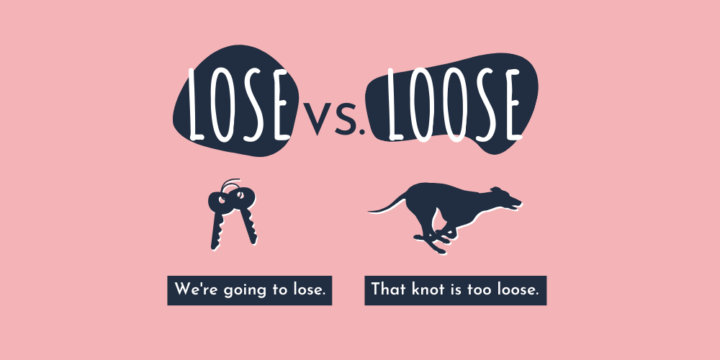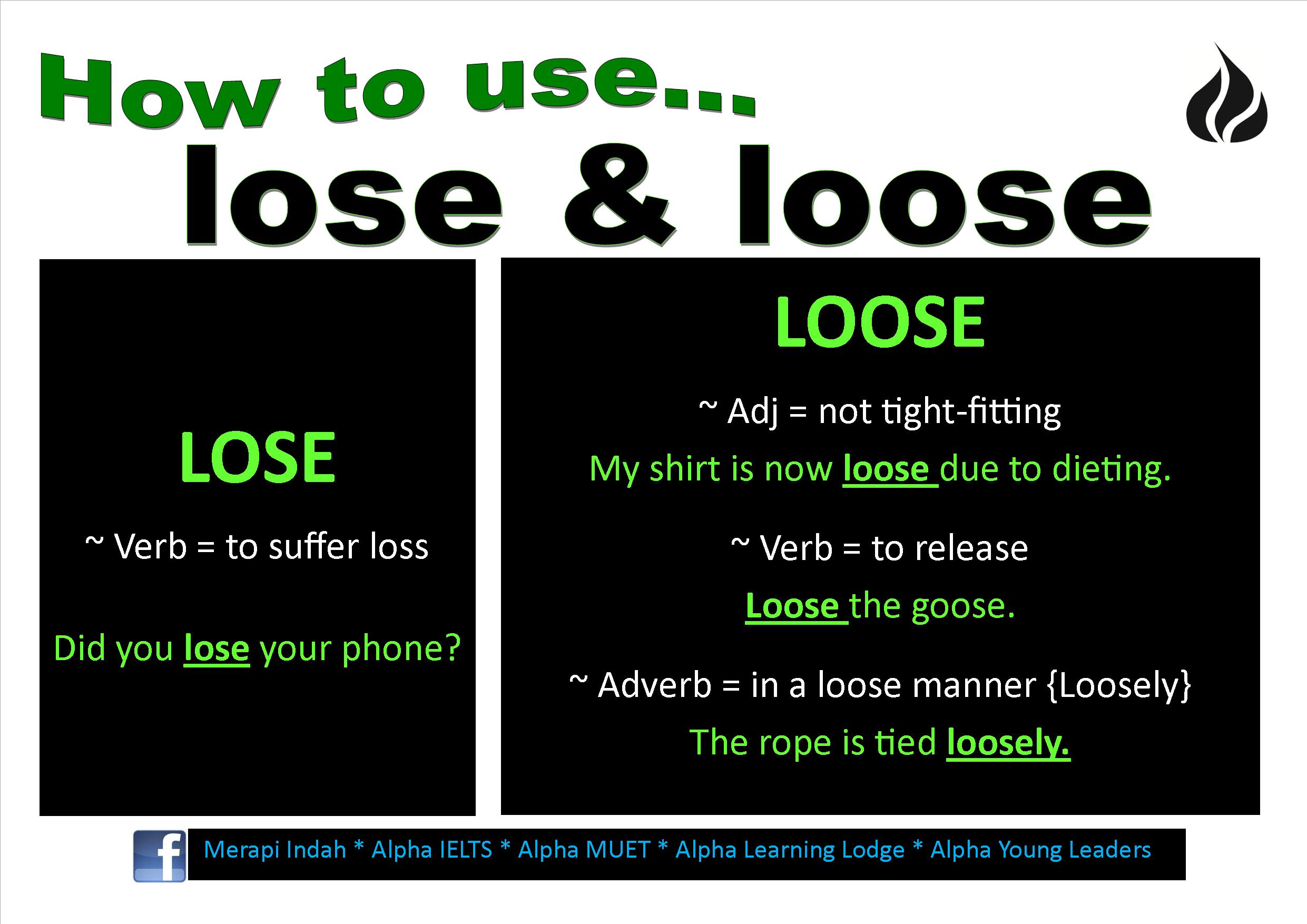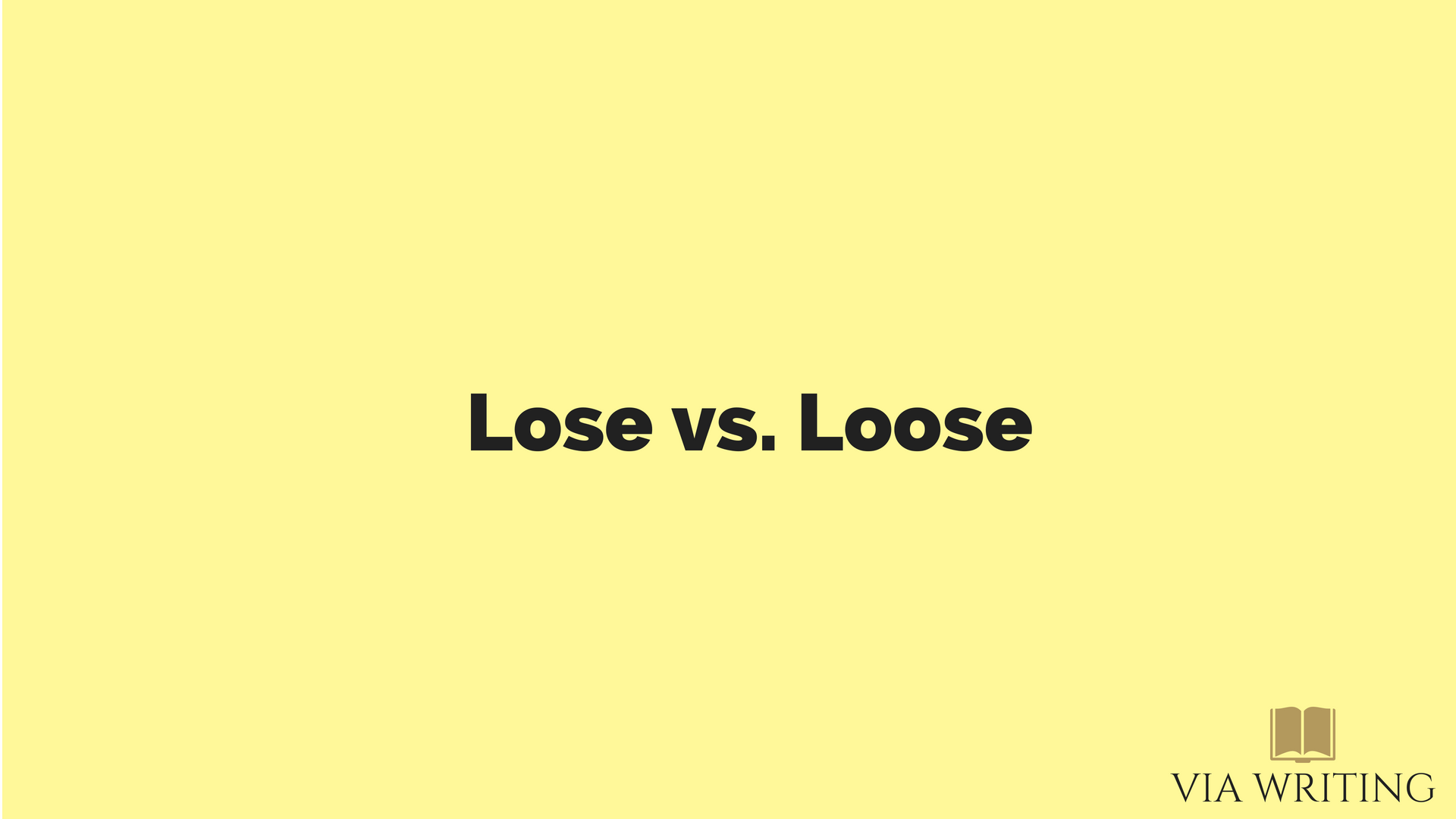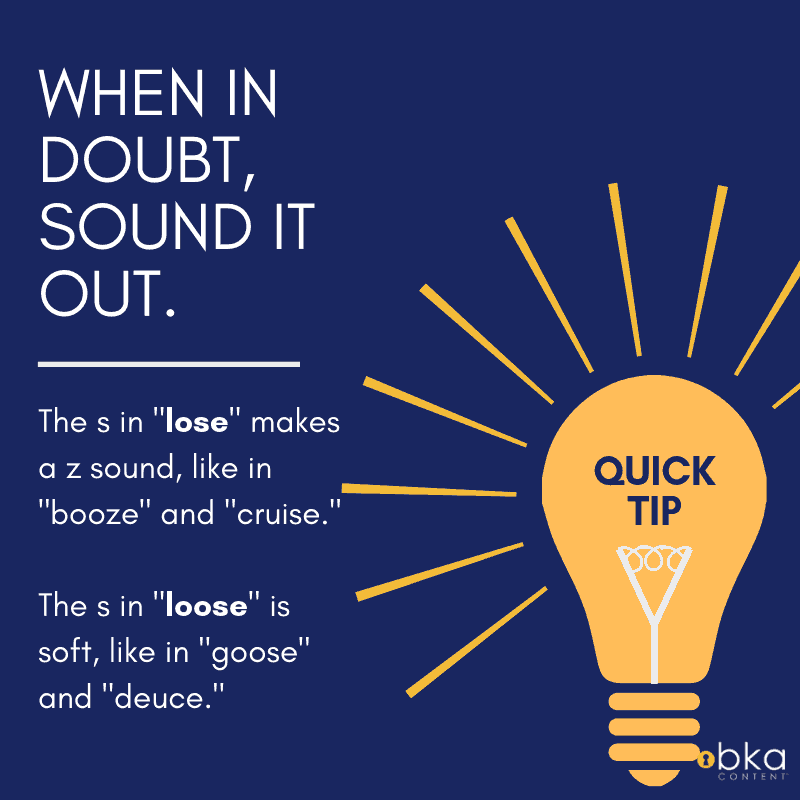lose or loose
So lose and loss are two words that have somewhat similar meanings but one must remember that these are the words that actually need more focus while writing. A word or phrase that describes an action.
 |
| Lose Or Loose Many People Write Loose When They By Amelia Zimmerman Write To Edit Medium |
Example- The way he is talking to me he is going to lose me forever.

. Example- If I lose this. Loose with a double O is an adjective that is the opposite of tight. The difference Loose Is an adjective. Lets talk about other forms of the word.
Lose with the past form Lost means to no longer have something. The word lose contains one less letter o than loose and this is true regardless of how their verb tenses. Common Terms with Loose and Lose lose a game lose belly fat lose hope lose hair lose your mind lose weight lose yourself. It means not being able to find something.
Loose means to make something less tight and it can also be an adjective or adverb that indicates an item that is free of constraints. I lose my socks when I cant find them in the. It can also mean failing to keep possession of something. Loose is an adjective and a verb and means to release something from restraints and to set it.
When choosing between loosing and losing the extra o makes all the difference. A word that describes a person place thing event substance or quality. The short answer is that lose with a single O is a verb that means to not win or to misplace something. So if you are wondering how to use the word lose in a.
I dont want to lose my expensive necklace on vacation. To lose is a verb that means to be unable to find something Ive lost my phone to lack something or stop having it Ive lost all motivation to fail to win or take advantage of. The word always modifies another noun and describes a quality of that noun. Lose is a verb means that to cease to own or retain something andor being unable to find something.
Learn when to use which correctly here. The Meaning of Lose Lose is a verb action word that means to misplace or to suffer defeat If you lose. To loose equates to release so if they are tied up and you let them go you. Lose means to misplace.
Dictionary Thesaurus Sentences Examples. For example the verb lose is written as lose lost or losing which. Lose typically functions only as a verb with meanings related to failing to win or hold onto something. When said aloud it rhymes with snooze.
To lose someone is to be unable to find them or it can be a euphemism for someone dying. When it comes to meanings there are no. What is the definition of lose Lose is defined as to stop having something because you do not know where it is misplace it or it is taken away from you. One might lose a game or lose ones temper Loose can be used as an adjective not securely attached a verb to free something or.
To lose is a verb or an action. Lose Is a verb. You can lose your pen if you dont keep it carefully Loose on the other hand Loosed in the past. Lose Lose is a verb and it is used when you are not able to find something.
Lose and loose are easy to confuse. Lose is a verb and means to be deprived of something. Like the other forms of. Lost is the past-tense.
The word lose means to experience a loss or get deprived of a thing. Answer 1 of 6. Lose is used as a verb. Lose always acts as a verb while loose is mostly used as an adjective even though less commonly can also be an adverb or a verb.
 |
| Free Learn The Difference Between Lose And Loose Fun Kids Worksheet |
 |
| How To Use Lose And Loose Merapi Indah |
 |
| Lose Vs Loose Via Writing |
 |
| Lose Vs Loose By Scottsa Educational Publishing Tpt |
 |
| Commonly Confused Words Lose Vs Loose Bka Content |
Posting Komentar untuk "lose or loose"